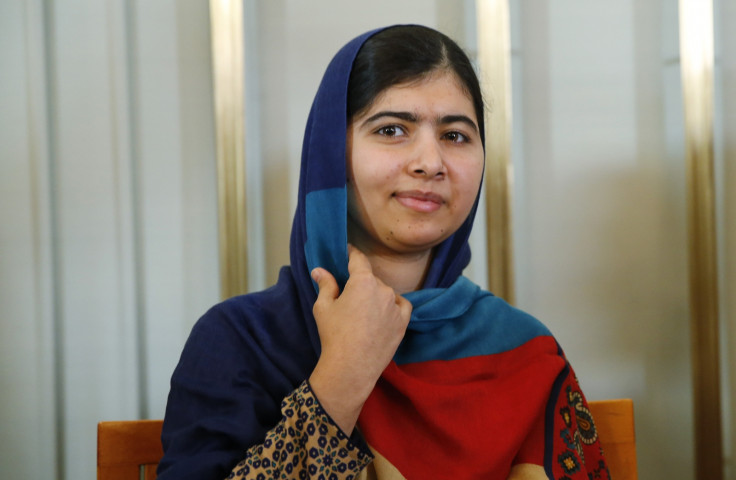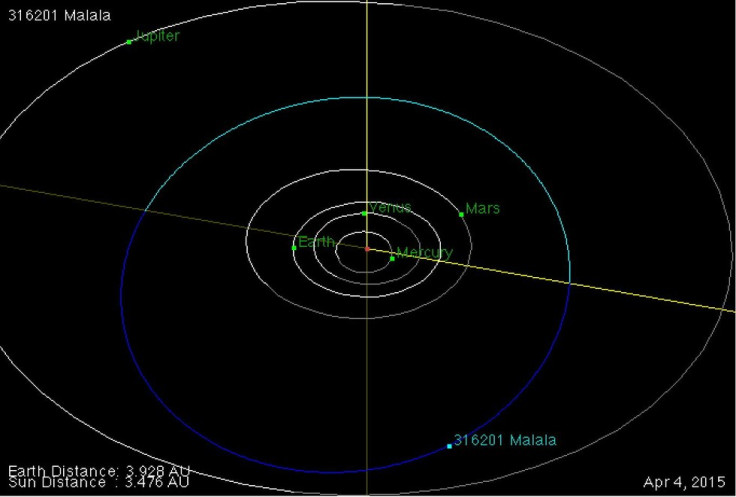Malala fame reaches heavens with Nasa naming asteroid after her

After winning the top award on planet Earth, Pakistan's Malala Yousafzai has made it to outer space echelons with an asteroid named after her.
A chunk of rock orbiting the Sun has been designated as 316201 Malala, or 2010 ML48.
Nasa astrophysicist Amy Mainzer who discovered the asteroid believes it is time to honour exceptional women, especially from other races.
Malala, who has been championing the cause of female education, was the prime contender.
The teenage education activist from Pakistan was gravely wounded by a Pakistani Taliban gunman for promoting the right of girls' to go to school.
With a bullet wound in her head, a portion of her skull had to be removed to treat her swelling brain. Her recovery following expert medical intervention including multiple surgeries has been seen as nothing short of a miracle.
In October 2014, at the age of 17, Malala received the Nobel Peace Prize, along with Indian children's rights activist Kailash Satyarthi.

Mainzer, working at the Jet Propulsion Laboratory, discovered Asteroid 316201 in June 2010, which gave her the right to name it.
The asteroid is about 4 kms in diameter, and orbits the sun in the main asteroid belt between Mars and Jupiter, taking 5.5 Earth years to go around once.
Thousands of asteroids swarm the region and are believed to be the leftovers from the solar system formation some four billion years ago.
"My postdoctoral fellow Dr Carrie Nugent brought to my attention the fact that although many asteroids have been named, very few have been named to honour the contributions of women (and particularly women of colour)," Mainzer writes on the Malala blog.
"We desperately need the brainpower of all smart people to solve some of humanity's most difficult problems, and we can't afford to reject half the population's," Mainzer wrote.
© Copyright IBTimes 2025. All rights reserved.



















